Music History Events: Technology
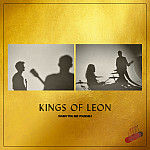 March 5, 2021 Kings Of Leon release their album When You See Yourself in a non-fungible token (NFT) auction that also includes digital artwork and "Golden Tickets." Other acts (notably, Grimes) have sold NTF art, but KoL is the first big name to try it with an album and VIP package.More
March 5, 2021 Kings Of Leon release their album When You See Yourself in a non-fungible token (NFT) auction that also includes digital artwork and "Golden Tickets." Other acts (notably, Grimes) have sold NTF art, but KoL is the first big name to try it with an album and VIP package.More
 September 9, 2014 Who doesn't like a free gift? Apparently, about 500 million iTunes users who create an uproar when U2's latest album, Songs of Innocence, shows up sans charge and sans permission in their personal libraries.More
September 9, 2014 Who doesn't like a free gift? Apparently, about 500 million iTunes users who create an uproar when U2's latest album, Songs of Innocence, shows up sans charge and sans permission in their personal libraries.More
September 1, 2010 Apple launches a social media network called Ping, which is integrated into its iTunes software. A rare flop for the company, it closes two years later.
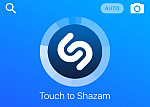 July 10, 2008 By simply tapping an app button on an iPhone, music fans can finally get an answer to the timeless question, "What's that song?" Shazam's free smartphone app is the first music recognition service of its kind - using a phone's microphone to listen to any song being played publicly - like in a restaurant, at a friend's house, or on TV - and identify it. And it actually works.More
July 10, 2008 By simply tapping an app button on an iPhone, music fans can finally get an answer to the timeless question, "What's that song?" Shazam's free smartphone app is the first music recognition service of its kind - using a phone's microphone to listen to any song being played publicly - like in a restaurant, at a friend's house, or on TV - and identify it. And it actually works.More
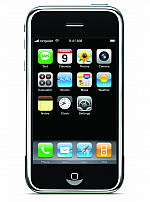 June 29, 2007 Apple's new device, the iPhone, is released, integrating music into a phone for the first time.More
June 29, 2007 Apple's new device, the iPhone, is released, integrating music into a phone for the first time.More
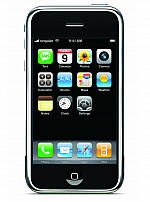 January 9, 2007 John Mayer joins Steve Jobs onstage at the Macworld Expo in San Francisco to introduce Apple's latest invention: the iPhone.More
January 9, 2007 John Mayer joins Steve Jobs onstage at the Macworld Expo in San Francisco to introduce Apple's latest invention: the iPhone.More
October 6, 2004 On his radio show, Howard Stern announces his move to satellite radio, where he will broadcast on Sirius, which gets a huge bump in subscribers. The move to satellite frees Stern from the shackles of the FCC, which doesn't regulate satellite. He and his crew are free to swear like sailors and talk dirty, which they often do. It also means fewer commercials.
October 16, 2003 Apple launches a Windows version of the iTunes store, previously available only on Macs.
October 10, 2001 Embracing the Internet at a time when broadband is rare, U2 webcasts a concert from their Elevation tour in South Bend, Indiana, for free on U2.com.
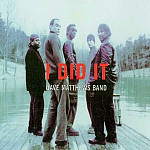 January 3, 2001 The Dave Matthews Band become the first major artist to release a song on Napster when "I Did It" debuts on the controversial file-sharing platform.More
January 3, 2001 The Dave Matthews Band become the first major artist to release a song on Napster when "I Did It" debuts on the controversial file-sharing platform.More
August 15, 2000 The estate of Jimi Hendrix acquires jimihendrix.com, which was registered in 1996 by a domainer who is using it to sell email addresses (yourname@jimihendrix.com). This is one of many cases that rules against registrants who are squatting names of famous people.
October 30, 1999 It's an early attempt at video over the web, as Neil Young's annual Bridge School Benefit concert is "cybercast" to a few brave souls trying to get their modems to work. The Who, Pearl Jam, and Brian Wilson perform at the show.
 March 13, 1999 Using the pitch correction software Auto-Tune to distort her vocals, Cher goes to #1 in America with "Believe," opening the floodgates for many more Auto-Tuned hits.More
March 13, 1999 Using the pitch correction software Auto-Tune to distort her vocals, Cher goes to #1 in America with "Believe," opening the floodgates for many more Auto-Tuned hits.More
September 19, 1997 The pitch-correction software Auto-Tune hits the market and soon becomes ubiquitous in recording studios, especially after Cher hits #1 with her Auto-Tuned "Believe."More
November 25, 1996 J-Bird Records, the first Internet record label, opens for business, offering previews using Real Audio and Shockwave. Clients include Mitch Ryder and Billy Squier, but the label folds a few years later.
December 11, 1995 Atlantic Records posts "Caught A Lite Sneeze," the first single from Tori Amos' album Boys For Pele, on their website in RealAudio format, marking the first time a full track by a major artist has been made available for download before its official release.
 August 24, 1995 Microsoft launches the Windows 95 operating system. The start-up music is composed by Brian Eno, a pioneer in ambient music who in 1978 released an album designed to soothe travelers at airports (Ambient 1: Music for Airports).More
August 24, 1995 Microsoft launches the Windows 95 operating system. The start-up music is composed by Brian Eno, a pioneer in ambient music who in 1978 released an album designed to soothe travelers at airports (Ambient 1: Music for Airports).More
April 3, 1995 The RealAudio Player is introduced, allowing users to stream audio over the internet for the first time. Over the next few years, many artists use it to post songs (or samples of them) on their websites.
November 18, 1994 The Rolling Stones become the first major act to stream a live concert on the Internet, webcasting 20 minutes of their show at the Cotton Bowl in Dallas, Texas. It's really for publicity to promote their upcoming pay-per-view concert, as very few computers can receive the webcast.
November 30, 1991 Billboard changes its methodology for determining the Hot 100, using SoundScan data to track record store sales and BDS information for radio plays. SoundScan, an electronic system that counts record sales when they are rung up, replaces record store reporting, which was typically done with phone calls. BDS is a Shazam-like service that identifies songs played by radio stations, which eliminates the need for stations to report their playlists. The first #1 on the revamped chart is "Set Adrift On Memory Bliss" by P.M. Dawn.
October 11, 1991 Apple Computers reaches an agreement with The Beatles' Apple Corps, paying $26.5 million for the rights to run music software - an update to their 1981 deal that prohibited the computer maker from selling anything music-related. The deal is revised from time to time as Apple Computer makes music a major part of their business.
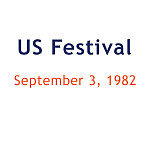 September 3, 1982 Apple co-founder Steve Wozniak throws the US Festival "for a few thousand friends" in hopes of uniting people through music and technology. A crowd of at least 200,000 shows up in the blistering heat of San Bernardino, California, for three days of music, tech-geekery, and dust... a whole lot of dust. Fleetwood Mac, performing for the first time in two years, headlines a bill that also includes The Police and the Grateful Dead.More
September 3, 1982 Apple co-founder Steve Wozniak throws the US Festival "for a few thousand friends" in hopes of uniting people through music and technology. A crowd of at least 200,000 shows up in the blistering heat of San Bernardino, California, for three days of music, tech-geekery, and dust... a whole lot of dust. Fleetwood Mac, performing for the first time in two years, headlines a bill that also includes The Police and the Grateful Dead.More
 July 1, 1979 The Sony Walkman debuts in Japan, making music portable.More
July 1, 1979 The Sony Walkman debuts in Japan, making music portable.More
April 4, 1973 The Elvis Presley Aloha From Hawaii concert, recorded three months earlier, is broadcast in America for the first time when it runs on NBC. The ratings are huge, with a third of households with TV sets tuning in to watch.
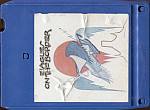 September 15, 1965 Ford offers factory-installed 8-track tape players in its Mustang, Thunderbird and Lincoln models. This marks the first time 8-track players are widely available, so you can only get the tapes in auto parts stores or Ford dealers. The players have a tendency to chew up the tapes, leading to 8-track roadkill as drivers throw the tangled tapes out their windows.More
September 15, 1965 Ford offers factory-installed 8-track tape players in its Mustang, Thunderbird and Lincoln models. This marks the first time 8-track players are widely available, so you can only get the tapes in auto parts stores or Ford dealers. The players have a tendency to chew up the tapes, leading to 8-track roadkill as drivers throw the tangled tapes out their windows.More
December 3, 1947 Patti Page records her first hit single, "Confess." Unable to find background singers due to a strike, Mercury Records sound engineer Bill Putnam overdubs Page's own vocals. It's the first-ever recording with overdubbed vocals.
October 1, 1947 Bing Crosby broadcasts the first ever pre-recorded radio show when he airs his Philco Radio Time show on the ABC network using a magnetophon, a Nazi recording technology discovered and brought to America by US Army Corps Officer John Thomas "Jack" Mullin. The magnetophon leads to the evolution of multi-track recording technology, which revolutionizes the music industry. Crosby becomes an investor in the technology, which he uses so he doesn't have to always do his shows live.
December 2, 2023 At Madison Square Garden, Kiss play their last show - in physical form, at least. At the end of their set, they play a video introducing their avatars. "The band deserves to live on because the band is bigger than we are," Paul Stanley says.
November 2, 2023 Using artificial intelligence to isolate John Lennon's vocals from an old demo, The Beatles release a new song: "Now And Then." It goes to #1 in the UK, their 18th chart-topper there.
April 4, 2023 The first truly believable AI-generated song appears online, posted to TikTok by an anonymous user. It's called "Heart On My Sleeve," and mimics the voices of Drake and The Weeknd. It quickly spreads to streaming services and is continually taken down and reposted, raising the issue of copyright with AI music.
Back to Categories©2024 Songfacts®, LLC
